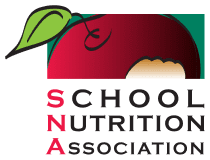School Nutrition and Meal Cost Study (SNMCS) The School Nutrition and Meal Cost Study (SNMCS) explored both the nutrition and cost domains of school meals in an integrated study design.…
Read MoreSalad Bars In Schools And Fruit And Vegetable Selection And Consumption: A Review Of Recent Research
Adequate nutrition is essential for child growth and development. According to the 2015–2020 Dietary Guidelines for Americans, a healthy eating pattern consists of whole grains, lean proteins, dairy, oils, fruits…
Read MoreANNOUNCEMENT OF FREE LUNCHES The chancellor of New York City public schools chose a basement cafeteria in Hell’s Kitchen to announce all 1.1 million enrolled students would receive free lunches…
Read MoreFood traceability can be defined as the ability to access all information related to a food product through its entire life by means of recorded identifications (Olsen & Borit, 2013).…
Read MoreAccording to estimates by the Centers for Disease Control and Prevention (CDC), approximately 17% of children and adolescents in the United States (US) are obese (CDC, 2018). A variety of…
Read MoreFamilies are primarily responsible for helping children establish positive health behaviors; however, many preschool-aged children (3-5 years) also spend a substantial amount of time in child care facilities making this…
Read MoreElementary students spend, on average, seven hours per day, five days per week, and 180 days per year, at school (National Center for Education Statistics, 2008). While lunch and recess…
Read MoreEating behaviors of children and associated health risks have been the subject of research focused on interventions to improve dietary habits, methods to demonstrate effectiveness of these interventions, and sustainable…
Read MoreSimilar to recommendations for adults, children should consume at least five servings (about 400g) of fruit and vegetables per day (WHO, 2015). A Canada-wide survey in 2004 suggested that 59%…
Read MoreFor many, May is the month that marks the beginning of the end. By that, I mean the countdown to the end of the school year is likely the driver…
Read More